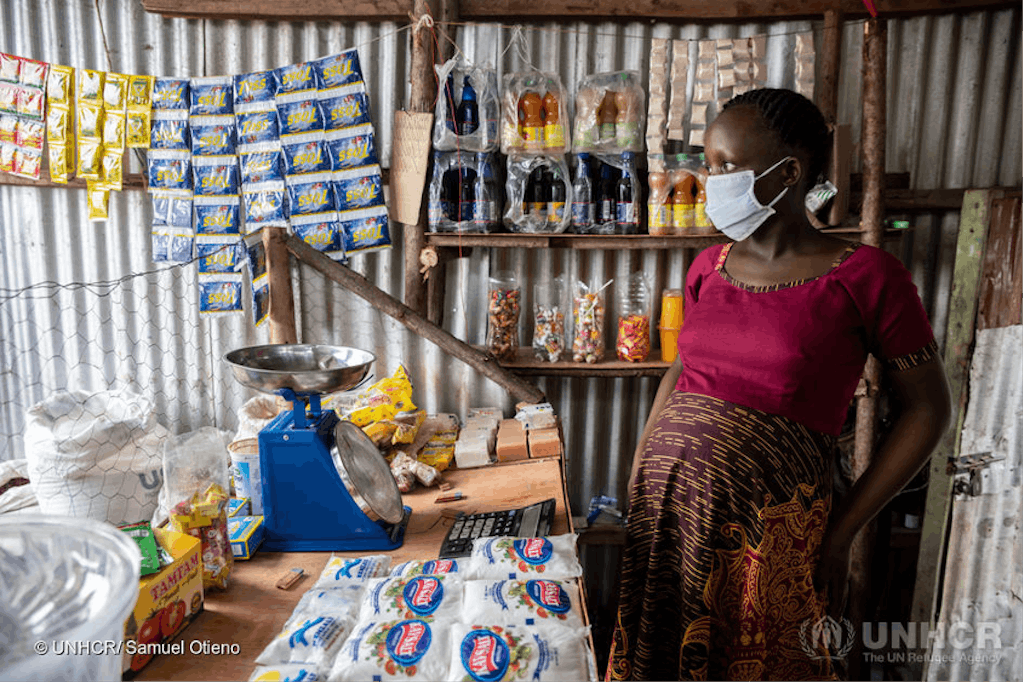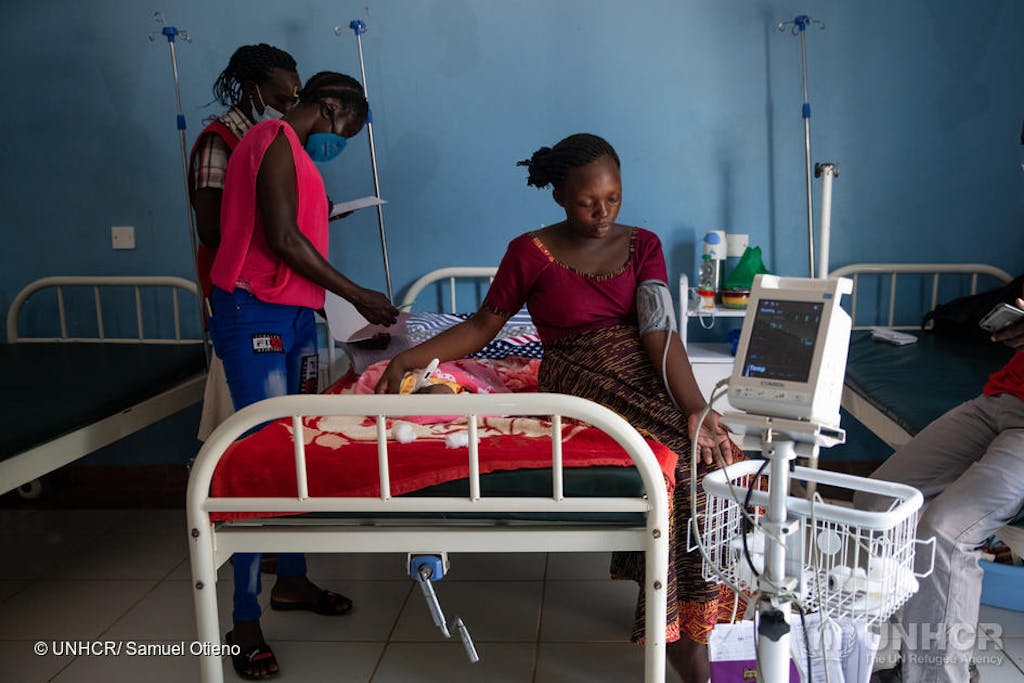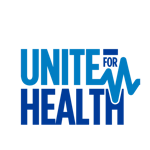With the support of the COVID-19 Solidarity Response Fund, the UN Refugee Agency has provided more than 3,140 pregnant women and girls in Kenya’s Kakuma camp and Kalobeyei settlement with uninterrupted access to maternal health services during the COVID-19 pandemic. Below is the story of Eliana, who recently gave birth to a healthy girl.
Eliana was four months pregnant when she heard about the first novel coronavirus case in Kakuma refugee camps in northwestern Kenya.
“I was scared that, with most services closing down, the hospitals would close, too,” said the Burundian refugee. “Later, I saw that the hospitals remained opened and I was relieved.”
When we spoke to her, she stopped occasionally to take deep breaths as she struggled to sweep her small shop. She is proud to be an entrepreneur.
“I started this business to make money so I can buy things for my family,” said Eliana, who runs the shop with her husband.

However, the COVID-19 pandemic has heavily affected her livelihood.
“The price of supplies has really gone up, and only a few customers visit my shop now,” she said.
For mothers like Eliana, an increase in prices and restrictions of movement have also meant limited access to basic items such as secondhand clothing for babies and fresh food for their health and well-being.
“During my first pregnancy, I easily got fresh fruits. Currently, it has been difficult to find any in the market,” she said.
Luckily, despite the pandemic, Eliana was still able to access her routine medical visits, thanks to the maternity wing at Natukobenyo Health Clinic, managed by the Kenya Red Cross Society (KRCS), a health partner of the UN Refugee Agency (UNHCR).
KRCS hires community health promoters, including refugees who regularly followed up with Eliana and other pregnant women and girls in the camp to ensure that they have access to prenatal care at nearby health facilities.
“I feel very safe when the health promoters come to check on me,” Eliana said.
With support from the COVID-19 Solidarity Response Fund and the United Nations Foundation, UNHCR and partners have ensured continuity of essential medical services, including routine vaccinations, reproductive health services for pregnancy and delivery, emergency care, and other services across all health facilities in the Kakuma refugee camps and the Kalobeyei settlement. This is in addition to COVID-19 support, including testing and treatment.
Dr. Jesse Muriithi, UNHCR’s public health officer in Kakuma, is appreciative of the support from the World Health Organization (WHO), which has ensured a sustained response to COVID-19 in the camp that hosts over 198,000 refugees, and where 307 cases have been detected since the first one was reported in May.
“Because the camp is densely populated, the risk of a rapid spread of COVID-19 remains high,” Muriithi said. “This support has given health care workers and the community the tools to cut off transmission of the virus and avert avoidable deaths.”

Between January and November 2020, 4,753 refugee and Kenyan babies were delivered in health facilities across Kakuma camp and Kalobeyei settlement, with over 3,140 of the deliveries performed since May, when the first COVID-19 case was reported in the area.
Eliana gave birth to a healthy girl in October and named her Christena, after her husband, Christophe.
“Normally, a convoy of motorbike riders would come to welcome the newborn. They would hoot all the way home and the community would come together to welcome the baby,” said Eliana.
While the pandemic made this celebratory parade impossible, Eliana is grateful for the safe delivery of her healthy baby.
In Kenya, where the COVID-19 outbreak represents yet another challenge that risks overshadowing the preexisting humanitarian needs of the most vulnerable people, the COVID-19 Solidarity Response Fund contribution is crucial. Thanks to this funding, UN Refugee Agency (UNHCR) activities in response to the current situation are strengthened, including health assistance in clinics and hospitals in different refugee-hosting areas of the country, which the host community can also access.
YOU CAN HELP
Every action counts in the fight against COVID-19. By supporting the COVID-19 Solidarity Response Fund, you can help continued efforts to fight the virus and protect the lives of refugees around the world. The Fund is the fastest and most effective way for individuals, companies, and organizations to support the work of the World Health Organization and its partners in battling the virus.
This piece was provided by UNHCR’s Samuel Otieno and has been edited and published with permission.



 View All Blog Posts
View All Blog Posts


